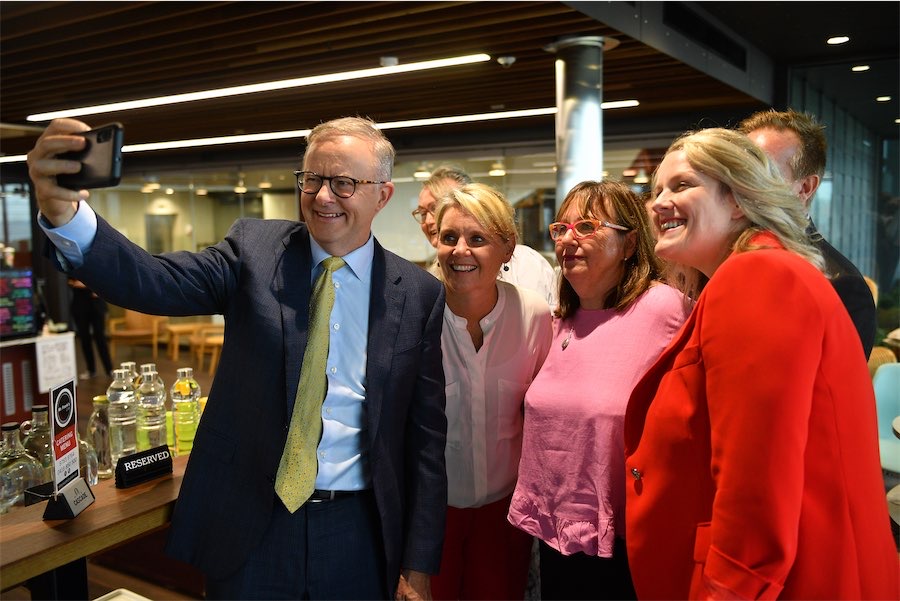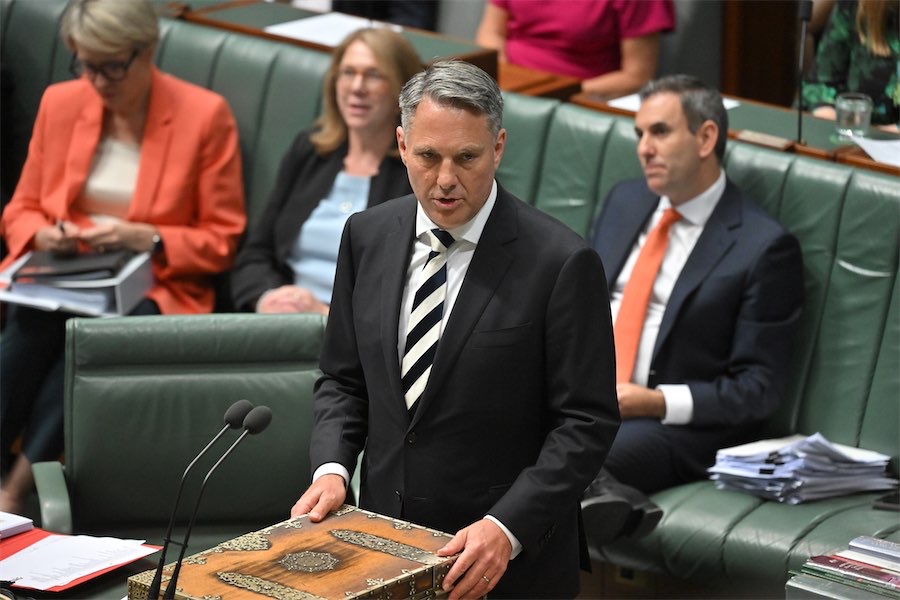“Making shonky donations easier for political parties has been the subject of a struggle between the states and territories on the one hand and their federal counterparts on the other,” says political columnist MICHAEL MOORE.
INTEGRITY is a key issue for all governments. But none more so than the current federal government.

The laws on donations to political parties are much less transparent and more open to corruption thanks to the combined efforts of the federal Labor and Liberal parties.
Additionally, attempts to establish a federal anti-corruption and integrity commission have been watered down, delayed and blocked by the government.
The most recent report by a parliamentary committee on political donations was a cop out. The bright light was a dissenting report by Greens senator Larissa Waters, who had introduced the bill to parliament. The single recommendation of the majority of members was to reject the bill.
What they rejected was a bill to: “Prohibit political donations from property developers, the tobacco industry, the banking industry, liquor and gambling businesses, pharmaceutical companies, the mining industry and representative organisations for these industries.”
Senator Waters’ dissent started by saying: “Too often, governments prioritise the private interests of their donors over the public interest.”
It is this sort of prioritisation that undermines our democracy
However, the bill went further to “impose a cumulative limit on political donations from any source of $3000 per election term; and extend the definition of ‘gift’ to include subscription and membership fees, as well as attendance at fundraising events”.

Making shonky donations easier for political parties has been the subject of a struggle between the states and territories on the one hand and their federal counterparts on the other. Luke Beck, a professor of constitutional law at Monash University, pointed to the efforts of the Morrison government to overturn restrictions at a state level that apply federally.
Donations that need to be declared at state and territory level if they are more than $1000 can be bypassed by declaring they are for “federal purposes”.
In this case they do not have to be declared if under $14,300. In 2019, the High Court upheld the right of Queensland to restrict such donations. However, this has not stopped the federal parties finding a way around the legislation.
Prof Beck pointed out that the more restrictive legislation in Queensland was the result of a recommendation of the Crime and Corruption Commission. The obvious question is: what would a federal anti-corruption commission make of such efforts – had it not been repeatedly blocked.
Integrity has been at the heart of so much discussion following the revelations of Brittany Higgins and the accusations levelled at Christian Porter. While the government has worked to find solutions to its political problem, it has struggled to find the right sort of inquiry.
An appropriately constituted body needs no government permission and could have immediately commenced an inquiry. Hopefully, it would have been able to do so with similar powers to a royal commission. This would have been consistent with the mercilessly repeated “rule of law”, a phrase that has been politically useful for Scott Morrison.
However, the Morrison government was self-serving in defining “rule of law” very narrowly. Criminal prosecution is just one element of the “rule of law”. The presumption of innocence is another. These are important concepts that avoid opening a Pandora’s box of unfounded accusations that could cripple governments.
However, the rule of law does allow alternative inquiries – such as those provided by a royal commission or an anti-corruption and integrity commission. Such inquiries provide opportunities for assessment of appropriate behaviours and make recommendations on preventive measures.
Similar bodies have served well in jurisdictions such as Queensland and NSW. In Canberra, we are still awaiting the first report of the Anti-Corruption and Integrity Commission that was promised in the 2016 ACT election.
The ACT has been a leader on the issue of political donations. Senator Waters’ dissenting report identifies, for example, the importance to “limit all political donations, from individuals or organisations, to $3000 per election term (roughly equivalent to $1000 per year) to level the playing field and avoid those with more money gaining greater access to government”. It also favours ACT-style caps on expenditure.
The combination of an appropriate integrity commission with real teeth, including the powers of a royal commission and a limit on political donations would be an excellent start in enhancing our democracy.
Michael Moore is a former member of the ACT Legislative Assembly and an independent minister for health. He has been a political columnist with “CityNews” since 2006.
Who can be trusted?
In a world of spin and confusion, there’s never been a more important time to support independent journalism in Canberra.
If you trust our work online and want to enforce the power of independent voices, I invite you to make a small contribution.
Every dollar of support is invested back into our journalism to help keep citynews.com.au strong and free.
Thank you,
Ian Meikle, editor





Leave a Reply